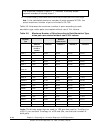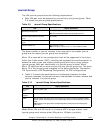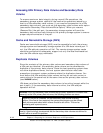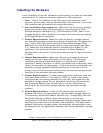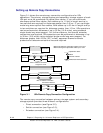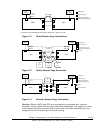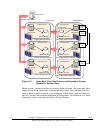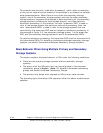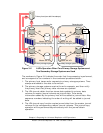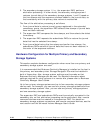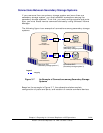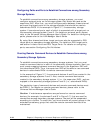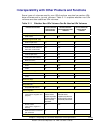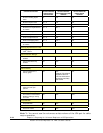
3-18 Chapter 3 Preparing for Universal Replicator z/OS Operations
Hitachi Universal Replicator for IBM /OS User’s Guide
This manual uses the term "arbitration processing", which refers to execution
of the journal restore function based on time stamps in an attempt to maintain
data update sequence. When there is more than one secondary storage
system, one of the secondary storage systems controls the other secondary
storage systems, compares time stamps of data received by all the secondary
storage systems (including the local storage system), and then performs
arbitration processing. In this manual, the term "supervisor DKC" is used to
refer to the storage system that performs arbitration processing. Also, the
term "subordinate DKCs" is used to refer to the storage systems that are
controlled by the supervisor DKC and are targets of arbitration processing. In
the example in
Figure 3-5, the secondary storage system 1 is the supervisor
DKC, and the secondary storage systems 2 and 3 are subordinate DKCs.
To perform arbitration processing, the supervisor DKC must be connected with
the subordinate DKCs. For details on connections between secondary storage
systems, see section
Connections Between Secondary Storage Systems.
Basic Behavior When Using Multiple Primary and Secondary
Storage Systems
This section explains the basic behavior of URz under the following conditions:
• There are two primary storage systems and two secondary storage
systems.
• The status of all the URz pairs that use journal groups in the extended
consistency group is Duplex. Note: For details on extended consistency
groups, see section
Extended Consistency Groups.
• The primary host issues write requests to URz primary data volumes.
The following figure illustrates a URz operation when the above conditions are
satisfied,



